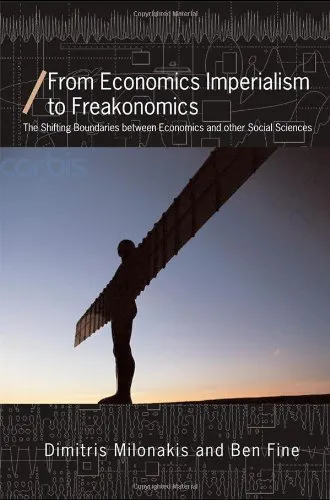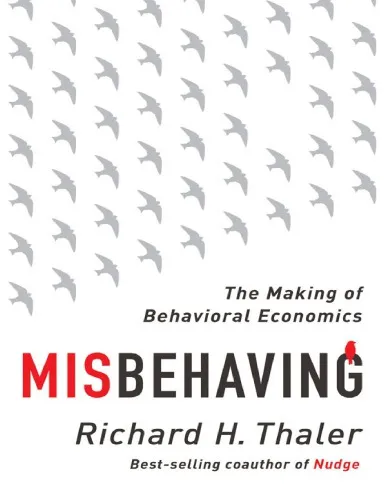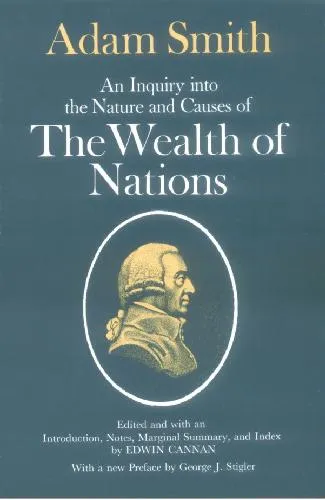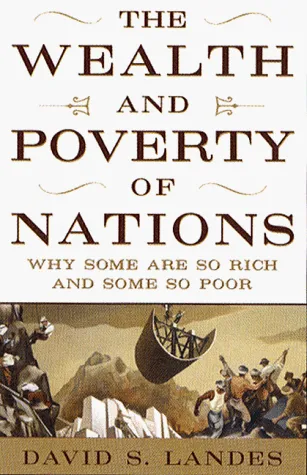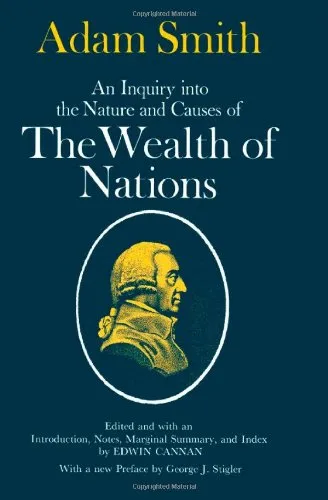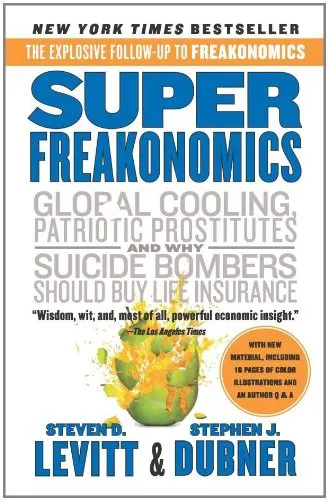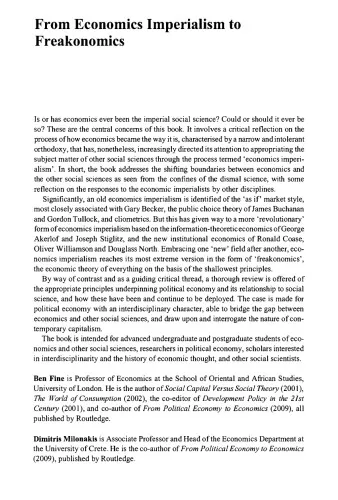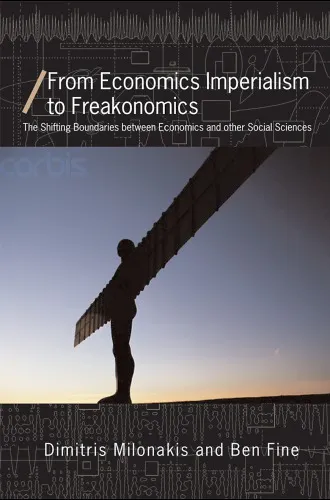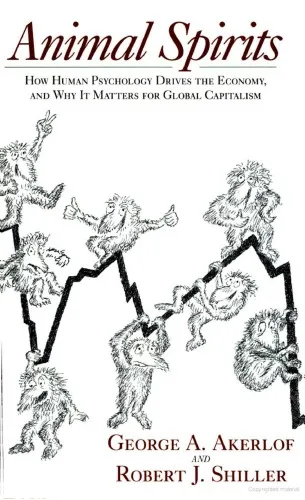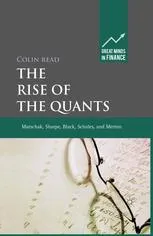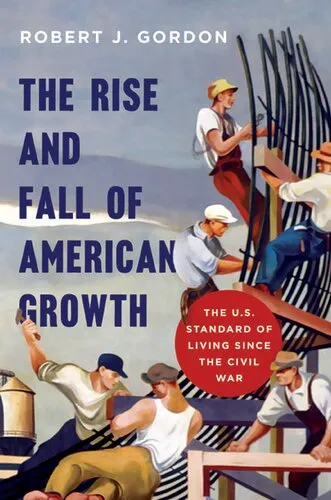From Economics Imperialism to Freakonomics: The Shifting Boundaries Between Economics and Other Social Sciences (Economics As Social Theory)
4.0
بر اساس نظر کاربران

شما میتونید سوالاتتون در باره کتاب رو از هوش مصنوعیش بعد از ورود بپرسید
هر دانلود یا پرسش از هوش مصنوعی 2 امتیاز لازم دارد، برای بدست آوردن امتیاز رایگان، به صفحه ی راهنمای امتیازات سر بزنید و یک سری کار ارزشمند انجام بدینکتاب های مرتبط:
مقدمهای بر کتاب
کتاب «From Economics Imperialism to Freakonomics: The Shifting Boundaries Between Economics and Other Social Sciences» به قلم بن فاین و دیمیتریس میلوناكیس یکی از آثار مهم در حوزه مباحث اقتصاد و ارتباط آن با سایر علوم اجتماعی است. این کتاب به بررسی نقش، تحول و تأثیرگذاری اقتصاد بر دیگر رشتهها پرداخته و مباحث مهمی همچون اقتصاد امپریالیسم و تعاملهای بینرشتهای را مورد تحلیل قرار میدهد.
خلاصهای از کتاب
در این کتاب، نویسندگان به بررسی روند تغییرات و تحولات رخ داده در اقتصاد طی دهههای اخیر پرداخته و به جایگاه مکتبهای مختلف اقتصادی و چگونگی نفوذ آنها در سایر علوم اجتماعی توجه میکنند. اثر با معرفی مفهوم اقتصاد امپریالیسم شروع شده و به تدریج به سمت تحلیل آثار پدیدههای نوظهوری مانند Freakonomics حرکت میکند. کتاب به بررسی این موضوع که چگونه اقتصاد به عنوان یک علم مستقل سعی دارد به سوالات مربوط به جامعه پاسخ دهد، میپردازد و نقدهای وارده بر رویکردهای اقتصادی مختلف را بیان میکند.
نکات کلیدی
- بررسی و تحلیل مفهوم اقتصاد امپریالیسم و تأثیر آن بر دیگر علوم اجتماعی.
- نقد و بررسی اقتصاد به عنوان علم اجتماعی و تلاشهای آن برای پاسخ به چالشهای فرهنگی و اجتماعی.
- بررسی آثار فرهنگی و اجتماعی ناشی از نفوذ اقتصاد بر آموزش و تحقیقات.
- تحلیل نحوه تحول اقتصاد و حرکت آن به سوی رویکردهای جدید مانند Freakonomics.
نقل قولهای معروف از کتاب
«اقتصاد نمیتواند به تنهایی تمامی مسائل اجتماعی و فرهنگی را تحلیل کند، بلکه نیاز به همکاری مداوم با دیگر علوم اجتماعی دارد.»
«تحول اقتصاد تنها به روز رسانی روشها و نظریهها نیست، بلکه درک عمیقتری از تعاملات بینرشتهای را میطلبد.»
چرا این کتاب اهمیت دارد
کتاب «From Economics Imperialism to Freakonomics» به دلیل بررسی دقیق تاثیرات متقابل اقتصاد و دیگر علوم اجتماعی، یکی از مهمترین منابع مطالعه در حوزه نظریات اقتصاد اجتماعی و اقتصادی است. این کتاب به درک بهتر چگونگی شکلگیری تعاملهای پیچیده بین اقتصادیها و سایر علوم مانند جامعهشناسی، علوم سیاسی و روانشناسی کمک میکند. اهمیت دیگر این کتاب در نقد و بررسی ساختاری و مبنایی تئوریهای اقتصادی و انعکاس دیدگاههای مختلف علمی است که میتواند برای دانشجویان و پژوهشگران در حوزههای مختلف منبعی ارزشمند باشد.
"From Economics Imperialism to Freakonomics: The Shifting Boundaries Between Economics and Other Social Sciences" presents a comprehensive analysis of the expansion of economics into various realms traditionally occupied by the other social sciences. As authors Ben Fine and Dimitris Milonakis delve into this phenomenon, they expose the transformation and impact of what is often termed as 'economics imperialism.' This book critically evaluates how economic methodologies and reasoning have increasingly infiltrated sociology, political science, history, and beyond, sometimes to the detriment of these disciplines' unique contributions to understanding societal complexities.
Detailed Summary of the Book
The book commences by tracing the historical evolution of economics as a discipline. It highlights how economics has transcended its traditional boundaries, beginning as a field primarily focused on markets and financial systems, to a discipline claiming to explain a broader array of social phenomena. This historical perspective is crucial as it illustrates the gradual transformation and expansion of economic thought, setting the groundwork for what the authors describe as 'economics imperialism.'
The authors argue that this imperialism is characterized by the application of economic theories and quantitative methods to areas such as crime, education, marriage, and even religion. They examine seminal works and prominent figures within this movement, including the popular "Freakonomics," which epitomizes the quirky and broad application of economic principles to social behavior and everyday life.
Central to this exploration is the critique of how economic methodologies have overshadowed qualitative analyses traditionally employed by other social sciences. Fine and Milonakis debate whether this crossover enriches interdisciplinary studies or diminishes the nuanced understanding provided by disciplines like sociology and anthropology. They emphasize the potential reductionism in complex social phenomena being explored through the narrow lens of economics.
Key Takeaways
- The expansion of economic principles beyond their traditional scope signals both opportunity and risk for interdisciplinary study.
- Economics imperialism raises critical questions about methodology and the appropriateness of economic models in explaining social behaviors.
- The authors stress the importance of maintaining the unique lenses and methodologies of traditional social sciences to preserve their capacity for in-depth sociocultural analysis.
Famous Quotes from the Book
"As economics spreads its ambit, we must question whether we are gaining in scope or losing in depth, understanding society through the eyes of its models."
"Economics imperialism is as much about power and influence within academia as it is about the shifting nature of knowledge itself."
Why This Book Matters
This book is pivotal for students, scholars, and practitioners across various social sciences, offering a thought-provoking examination of how disciplines evolve and interact. As economics increasingly claims territory in explaining human behavior, understanding the implications of this expansion is crucial. Fine and Milonakis provide a robust framework for analyzing the benefits and drawbacks of interdisciplinary study, highlighting the consequences of allowing economics to dominate social discourse. This work invites readers to critically engage with the balance between applying rigorous economic methodology and preserving the rich, qualitative insights offered by other social sciences, ensuring a holistic approach to understanding complex societal issues.
By shedding light on the dynamics of intellectual imperialism, the book encourages a reevaluation of interdisciplinary boundaries, fostering dialogue on the future of social scientific inquiry. It matters because it challenges assumptions, provokes debate, and promotes a deeper understanding of where the power of economic analysis lies and where its limitations begin.
دانلود رایگان مستقیم
شما میتونید سوالاتتون در باره کتاب رو از هوش مصنوعیش بعد از ورود بپرسید
دسترسی به کتابها از طریق پلتفرمهای قانونی و کتابخانههای عمومی نه تنها از حقوق نویسندگان و ناشران حمایت میکند، بلکه به پایداری فرهنگ کتابخوانی نیز کمک میرساند. پیش از دانلود، لحظهای به بررسی این گزینهها فکر کنید.
این کتاب رو در پلتفرم های دیگه ببینید
WorldCat به شما کمک میکنه تا کتاب ها رو در کتابخانه های سراسر دنیا پیدا کنید
امتیازها، نظرات تخصصی و صحبت ها درباره کتاب را در Goodreads ببینید
کتابهای کمیاب یا دست دوم را در AbeBooks پیدا کنید و بخرید
1377
بازدید4.0
امتیاز0
نظر98%
رضایتنظرات:
4.0
بر اساس 0 نظر کاربران
Questions & Answers
Ask questions about this book or help others by answering
No questions yet. Be the first to ask!
